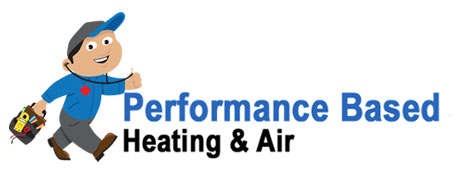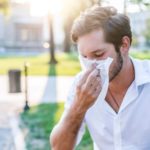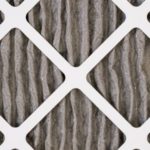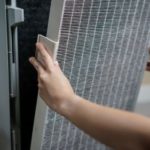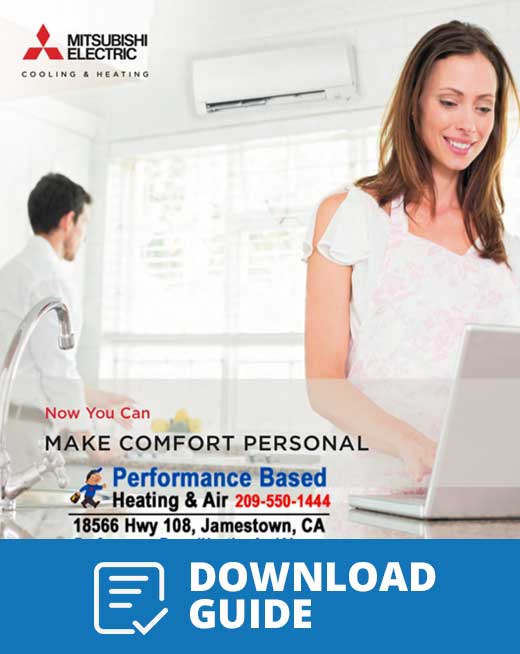How to Find the Most Effective HVAC Filter for Keeping Allergies at Bay
Those with allergies know how important effective filters are. The right filter can make all the difference in the world when it comes to allergy season. But picking the right filter isn’t always so easy. Some filters may sound good in practice, but they may not be ideal for the particular AC at home. It’s possible to get a filter that’s too thick and doesn’t let enough air through. This can cause expensive problems with the air conditioner, so this is good to keep in mind. Read on to discover the best AC filter for allergy season.
Common Fiberglass Filters
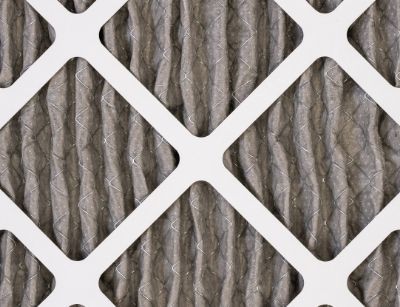
For those with allergies, the problem with fiberglass filters is twofold. First, fiberglass filters are only designed to capture large particles like dust and lint. They allow for more airflow, which is nice, but they don’t catch as many small particles as other filters. The second issue is that most people don’t change their fiberglass filters when they should. This allows allergens to build up in the home, making things worse for those with allergies.
Reusable/Washable Filters
Those environmentally conscious homeowners may want to invest in reusable air filters. While this is a worthy cause and buying a washable filter will do a bit to reduce the home’s trash, they’re generally not all that great for those with allergies. This is because they generally have low minimum efficiency return value (MERV) ratings. MERV ratings are from 1 to 20, with 20 being the best and 1 being the worst.
Washable filters generally have a MERV rating between 1 and 4. Granted, most fiberglass filters also have a similar rating. So for those who are choosing between fiberglass and reusable need to decide if they want convenient or environmentally-friendly filters. Either way, the filters will not do much to keep small particles out of the home.
High-Efficiency Particulate Air (HEPA) Filters
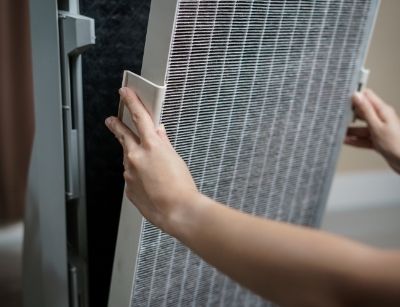 HEPA filters are the best option for those with allergies. These types of filters are made from plastic or fiberglass, but the difference lies in their efficiency. To be a HEPA filter, it must be rated to remove 99.7% of all particles 0.3 microns or larger. For reference, pollen can range from 1 to 100 microns in size. This means that HEPA filters can remove much of the pollen contained in the air that passes through them.
HEPA filters are the best option for those with allergies. These types of filters are made from plastic or fiberglass, but the difference lies in their efficiency. To be a HEPA filter, it must be rated to remove 99.7% of all particles 0.3 microns or larger. For reference, pollen can range from 1 to 100 microns in size. This means that HEPA filters can remove much of the pollen contained in the air that passes through them.
However, before going out and purchasing a HEPA filter, it’s best to check with an HVAC professional to see if the system can have a HEPA filter installed. Some HVAC systems will not operate efficiently with a HEPA filter in place. But there is almost always a workaround for homeowners who want to benefit from these high-efficiency particulate air filters.
About Performance Based Heating & Air
Performance Based Heating & Air is proud to provide expert AC repair services in Sonora, CA. Their NATE-Certified technicians offer honest recommendations while educating homeowners on their AC system. For professional service, straightforward pricing, and dependable results, call Performance Based Heating & Air today!
Distribution Links +
- rfdtv.com
- lifestyle.us983.com
- lifestyle.countrylegends1059.com
- lifestyle.1045thedan.com
- panhandle.newschannelnebraska.com
- wrde.com
- midplains.newschannelnebraska.com
- wicz.com
- wboc.com
- ktvn.com
- snntv.com
- htv10.tv
- central.newschannelnebraska.com
- metro.newschannelnebraska.com
- southeast.newschannelnebraska.com
- northeast.newschannelnebraska.com
- plattevalley.newschannelnebraska.com
- rivercountry.newschannelnebraska.com
- wpgxfox28.com
- lifestyle.mykmlk.com
- wtnzfox43.com
- lifestyle.3wzfm.com
- lifestyle.bigtalkerradio.com
- lifestyle.rewindmymusic.com
- lifestyle.koltcountry.com
- lifestyle.967thewolf.net
- lifestyle.southernsportstoday.com
- lifestyle.thepodcastpark.com
- lifestyle.680thefan.com
- lifestyle.xtra1063.com
- lifestyle.953hlf.com
- lifestyle.rewind1019.com
- lifestyle.967wshv.com
